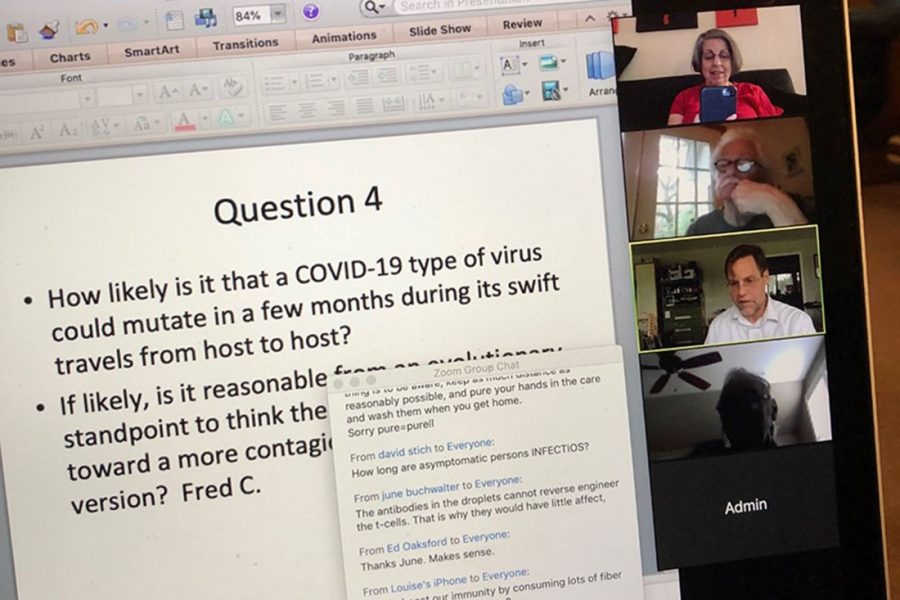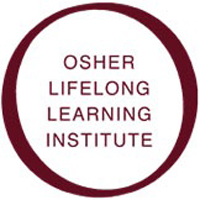
 It’s not just traditional students and their instructors who the COVID-19 pandemic has forced to transition to remote learning technology. It’s also non-traditional students — lifelong learners, most of them 50-plus — who are adjusting to distance learning technologies.
It’s not just traditional students and their instructors who the COVID-19 pandemic has forced to transition to remote learning technology. It’s also non-traditional students — lifelong learners, most of them 50-plus — who are adjusting to distance learning technologies.
The 1,200 members of Florida State University’s Osher Lifelong Learning Institute are prime examples of this phenomenon. When the pandemic forced the university to shift all in-person courses to remote learning, OLLI classes were no exception.
Just over halfway through their six-week spring semester, OLLI students were enrolled in more than 50 classes covering a wide range of topics and learning environments. For the most part, instructors — many of whom are faculty members at local educational institutions — had to learn new technology and figure out ways to present materials intended for in-person classes.
Instructors and students rose to the occasion with energy and goodwill. An informal survey of members showed mostly positive responses to distance technology that ranged from Zoom meetings to FaceTime calls to instructor-narrated PowerPoint presentations to emails of instructor notes, videos and lectures.
Among classes that lent themselves especially well to Zoom and other meeting technologies: “Hong Kong and Mainland China,” “Climate Change,” “Intuitive Eating,” “Ancient Greece in the Modern Imagination,” “The Pre-Raphaelite Revolution in Art and Literature,” “Requiems: Music to Die For,” “Executive Clemency,” “Yoga for Life” and “American Musicals.”
“The Tantalizing Sounds and Images of Debussy and Ravel” and “Early Contact Period Archaeology” were among classes that offered challenges to online presentation, but instructors and students prevailed and found solutions. Even more challenging: “The Mad Hatter’s Tea Party,” a consideration of the nature and history of mathematics, words and meaning, ordinarily featured an elegant high tea served to students at each class session. When instructor Robert Watkins had to go online, his personal high tea, complete with china, scones, savories and sweets, was included in the video background. His students had to prepare their own high tea at home.
Of all OLLI’s spring semester classes, the pandemic may have affected Jonathan Dennis and his students on The Human Biome most significantly. Dennis, the Pfeiffer Endowed Professorship for Cancer Research in FSU’s Department of Biological Science, has previously taught OLLI classes on epigenetics and CRISPR technology, providing information on cutting-edge scientific research to OLLI students.
The pandemic changed the topic of Dennis’ class, from explaining the role and behavior of the bacteria living in and on our bodies, to how COVID-19 is threatening to ravage our society. In contact with researchers around the world, Dennis presented up-to-the-minute COVID-19 findings to the class for several of the seven scheduled class sessions. He even used Zoom to bring in his brother, Christopher Dennis, a physician on the front lines of the pandemic. Christopher Dennis is Assistant Professor of Medicine, Harvard Medical School, and Co-Director, Mount Auburn Hospitalist Service, who provided the latest news and answered many questions from students.
As with so many OLLI instructors, who include current and retired FSU faculty members, distance learning was new to Dennis. At first, he was concerned about its effectiveness because he depends on his students to boost the energy he depends on for teaching.
Dennis’ concern was unfounded, he discovered. As usual, OLLI’s enthusiastic, inquisitive students participated actively, asking questions and making comments nearly as frequently as during in-person classes. Dennis’ presentation remained as powerful and interactive as those he held at the Broad Auditorium at the Pepper Center.
“In retrospect, I should not have been worried or surprised,” Dennis said. “The ease of this transition reflects the qualities of the OLLI student that I have come to appreciate over the past few years: always willing to push harder, try something new, make the unfamiliar work, maintain an even-keeled thoughtful response.”
With the conclusion of OLLI’s spring semester, plans are moving ahead for the organization’s three-week “Maymester.” All classes will be held remotely.
While distance learning may not be ideal in normal circumstances because it doesn’t provide the social interaction offered by in-person classes, some students have indicated that they would be even more open to distance classes because they could avoid driving, traffic and parking issues and not have to deal with physical difficulties that may make it hard for them to leave home.
“We had already been considering offering distance-education opportunities to our curriculum, but the COVID-19 pandemic pushed us to figure out how we could make it happen,” said OLLI Executive Director Debra Herman. “Thanks to cooperative, innovative instructors and accepting students, we did just that. We hope that we will be able to add new technology to our FSU facilities to make online learning even more convenient.”
Registration for Maymester classes is scheduled for April 23. There are no educational prerequisites for classes, and there are no grades, exams or required homework. Registration and membership are open to lifelong learners over 50. Because students do not need to be present in Tallahassee to enroll in classes, membership and registration will be open to lifelong learners throughout the country. For more information, see olli.fsu.edu or email dherman@fsu.edu.




